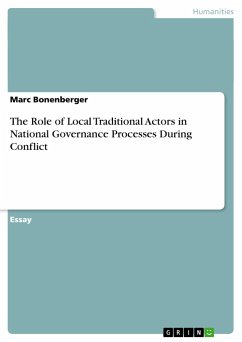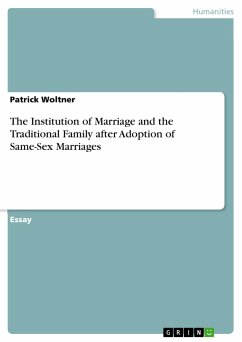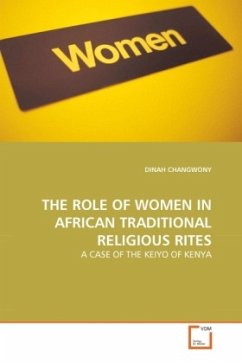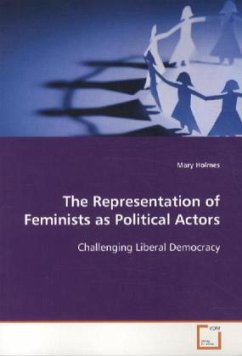
The Role of Local Traditional Actors in National Governance Processes During Conflict
Versandkostenfrei!
Versandfertig in 1-2 Wochen
14,99 €
inkl. MwSt.

PAYBACK Punkte
0 °P sammeln!
Essay from the year 2008 in the subject Sociology - Political Sociology, Majorities, Minorities, grade: 1,0, University of Basel (Institut für Soziologie), course: Seminar: Governance, power and politics: the role of non-state actors, language: English, abstract: In the social sciences the state is theoretically defined as a political association with effective sovereignty over a delimited territory. It is an institution or a set of institutions which have been invested with a legitimate monopoly over the means of physical violence to exercise authority over both its territory and the populat...
Essay from the year 2008 in the subject Sociology - Political Sociology, Majorities, Minorities, grade: 1,0, University of Basel (Institut für Soziologie), course: Seminar: Governance, power and politics: the role of non-state actors, language: English, abstract: In the social sciences the state is theoretically defined as a political association with effective sovereignty over a delimited territory. It is an institution or a set of institutions which have been invested with a legitimate monopoly over the means of physical violence to exercise authority over both its territory and the population resident therein. Furthermore it is also in control "of the monopoly of taxation as well as the monopoly of setting and enforcing rules and regulations that are binding for every citizen" (Lambach 2007: 33). Therefore no political authority can exist above it. Usually the state exercises the monopolies by itself or by agents who act on its behalf, but it can also legitimize private acts of violence, taxation or rule-setting. It happens, however, that a state has certain difficulties to implement its rules, to collect taxes or to enforce its monopoly of violence. When it faces this kind of deficiency a state is described as "weak". When it is unable to exercise authority and its monopolies it is labelled as a "failed" or even as a "collapsed" state. Since the beginning of the 1960s cases of state failure occurred almost always in the so called Third World, and here most likely in Africa (in fact 15 of the 24 cases or nearly two thirds happened in Africa). That also European states can fail showed the example of Bosnia-Herzegovina from 1992 to 1995 (ibid: 33, 37). When a state is weak or has failed the political space it leaves open is filled by different non-state actors who are driven by different motives and follow different strategies. These private actors are either formal or informal in nature. They form, as Neubert (2007) calls it, "islands of order" in areas where no public services are available (4). The formal private sector comprises, among others, companies - especially from the mining and extracting sector - who provide some kind of formal organisation in their range of operation and non-profit organisations (NPO) like humanitarian aid and refugee organisations who as well can acquire - even though often not intended - quasi-state functions within their camps (see Neubert 2007: 5).












